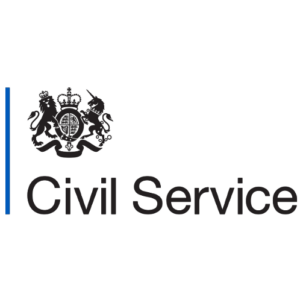Psychometric Tests
Register for Free
Register now for free to give yourself the best chance of passing your psychometric tests
Revise
Click below to learn the best ways to revise for your psychometric assessment for interviews
What is a Psychometric Assessment Test?
A psychometric assessment test is a structured evaluation designed to measure problem-solving, logical reasoning, and numerical aptitude. A typical psychometric aptitude test may include numerical reasoning, verbal reasoning, logical reasoning, and situational judgement—each assessing different competencies. They help employers shortlist individuals based on measurable competencies, making hiring fairer and more efficient. Common in graduate schemes, apprenticeships, and professional roles, these tests typically occur early in recruitment to filter applicants, though some employers use them later for final assessments.
Register now for free online psychometric assessments for numerical reasoning to give yourself the best preparation for your upcoming psychometric assessment interviews.

Prepare Yourself for Leading Employers
Types of Psychometric Tests
There are different types of test which fall under the umbrella term of psychometric tests. Each psychometric assessment focuses on specific skills which employers require in successful candidates. Employers commonly use psychometric test online platforms to administer these assessments. Regardless of the type of test, psychometric test preparation is essential for improving performance in the tests as better familiarity with the format will aid in accuracy and effective time management.
Four common psychometric testing types are broken down below. Click on each one to view the psychometric test type in more detail.
Numerical Reasoning Tests
A psychometric aptitude test focused on numerical reasoning evaluates a candidate’s ability to interpret, analyse, and work with numerical data. These psychometric test for job interviews involve graphs, tables, and charts, requiring strong mathematical skills such as percentages, ratios, and data comparisons. Often used in recruitment for roles in finance, engineering, business, and technology, numerical reasoning tests help employers evaluate problem-solving abilities and decision-making skills under time pressure.
Click here to view more about Numerical Reasoning Tests
Verbal Reasoning Tests
Verbal reasoning tests evaluate a candidate’s ability to understand, interpret, and analyse written information. These psychometric exam questions typically involve reading passages and answering multiple-choice questions that assess comprehension and the ability to draw conclusions based solely on the provided text. Often used in recruitment for roles requiring strong communication and critical thinking skills, such as business, law, and administration, verbal reasoning tests help employers identify candidates who can process information accurately and make well-reasoned decisions.
Logical Reasoning Tests
Logical reasoning tests assess a candidate’s ability to identify patterns, solve problems, and think critically using abstract information. These tests typically involve sequences of shapes, symbols, or numbers, requiring candidates to determine the underlying rules and predict the next element in the pattern. Commonly used in recruitment for roles in engineering, technology, finance, and consulting, logical reasoning tests help employers evaluate problem-solving skills and the ability to think logically under pressure.
Situational Judgement Tests
Employers use situational judgement tests to gauge how well applicants align with company values, work under pressure, and interact with colleagues or customers. These tests present hypothetical situations relevant to the role and require candidates to choose or rank the most appropriate responses. Commonly used in recruitment for leadership, customer service, and managerial roles, situational judgment tests help identify candidates with strong judgement, teamwork, and ethical decision-making skills.
How are Psychometric Tests Conducted?
🏛️ Structure & Provider of Psychometric Assessments
There set-up and structure of psychometric tests can vary greatly depending on the type of test (i.e. whether it is a numerical reasoning test or a situational judgment test) and which company has provided the assessment. Numerical and logical reasoning tests tend to have from 15 to 25 multiple-choice questions, with situational judgement and verbal reasoning tests often having up to 30 questions. It is also important to note that some psychometric test companies combine the different types of psychometric tests into one assessment.
See the Common Psychometric Test Providers section below to find out more information on the most common providers.
⌛ Duration and Time Limits of Psychometric Assessments
A lot of psychometric tests are conducted asynchronously and online, meaning that you can choose when to sit the test. However, certain types of psychometric test are likely to be timed. Numerical, verbal, and logical reasoning tests tend to range from 12-30 minutes in length. Situational judgement tests, however, are often not timed assessments, allowing the applicant to carefully consider their responses. If they are timed, situational judgement assessments have a slightly longer duration of 20-45 minutes. The time limit can be used to simulate real-world workplace pressures, so exam technique is important. Eliminating incorrect answers in multiple choice formats, knowing when to move on from a question, and remaining focused while also keeping aware of the time are all helpful ways of succeeding in timed psychometric tests.
Register now for free psychometric tests for numerical reasoning to give yourself the best preparation for your upcoming psychometric assessment interviews.

Top Tips for Psychometric Assessment Preparation
1 - Understand the Format
Research the type of psychometric test you’ll be taking, whether it’s numerical, verbal, logical reasoning, or a situational judgement test. Each test has a unique format, so understanding what to expect is essential. Additionally, different providers can have different styles of test so knowing which provider the company is likely to use can be very useful.
Information on different providers of numerical reasoning tests can be found on our Numerical Reasoning Test page.
Information on the numerical reasoning and other types of psychometric assessment test examples required by some of the top graduate employers can be found on our Graduate Schemes page.
2 - Practise Core Skills
If taking a numerical reasoning test, revise key mathematical concepts like percentages, ratios, and data interpretation. For verbal reasoning, focus on reading comprehension and logical analysis.
For more information on the topics in numerical reasoning tests, see our Numerical Reasoning Test page.
3 - Use Online Resources
Take advantage of our online resources, including a free psychometric test mock, which provides a realistic practice experience. Online psychometric assessments often take place remotely, helping candidates familiarise themselves with the test environment, as well as the format and structure of the assessment.
4 - Review your performance
Once you have completed the online psychometric test mock, it is important to review your performance. Note the things that you did well on, and focus your next bout of revision on the gaps in your knowledge. Our free practice numerical reasoning test provides both written and video solutions, meaning that your understanding is supported whichever way you learn best.
5 - Improve Time Management
Some psychometric test types are timed assessments, meaning that effective time management is crucial. Tests are sometimes designed to see how candidates handle time pressures and work against the clock. Sticking to a time limit while completing practice psychometric assessments will help prepare for the official tests. Our free online numerical reasoning test of 20 questions runs for an allocated 20 minutes in order to give a life-like experience of a numerical reasoning assessment.
Common Psychometric Test Providers
There are several psychometric test companies that design psychometric assessments for employers, each with their own format, difficulty level, and question style. Below are some of the most commonly used psychometric test providers and key information about them:
SHL (Saville and Holdsworth Limited)
SHL is one of the most widely used providers of psychometric tests for corporate recruitment. Their assessments cover numerical, verbal, logical reasoning, and situational judgement tests (SJTs), typically lasting between 17 and 25 minutes. SHL tests often feature multiple-choice questions based on graphs, charts, and logical patterns, requiring candidates to demonstrate problem-solving and data interpretation skills under strict time limits.
Companies that commonly use SHL as their psychometric test provider to assess analytical and decision-making abilities include:
- Deutsche Bank
- Barclays
- British Airways
Aon/Cut-e
Aon, also known as Cut-e, specialises in gamified psychometric assessments and speed-based numerical reasoning tests. Their tests are shorter than traditional psychometric tests, often lasting between 6 and 12 minutes. Aon/Cut-e assessments focus on quick problem-solving tasks, requiring candidates to answer questions rapidly while maintaining accuracy. These tests are commonly used in industries such as technology, engineering, and fast-moving consumer goods (FMCG).
Companies that commonly use Aon/Cut-e as their psychometric test provider include:
- Rolls Royce
- P&G
- Deloitte
Talent Q (Now Part of Korn Ferry)
Talent Q, now part of Korn Ferry, is known for its adaptive psychometric tests, which adjust difficulty based on a candidate’s responses which ensures that each candidate is challenged at the appropriate level, making them a reliable measure of cognitive ability. Their numerical, verbal, and logical reasoning tests vary in time and complexity, often lasting 12 to 25 minutes. Talent Q tests are commonly used for corporate and executive hiring to select candidates with strong analytical and decision-making skills.
Companies that commonly use Talent Q (Korn Ferry) as their psychometric test provider include:
- RBS
- Volkswagen
- Royal Mail
Kenexa (IBM Talent Assessments)
Kenexa, part of IBM Talent Assessments, provides numerical, verbal, logical reasoning, and situational judgement tests, primarily used in the banking, finance, and consulting industries. These assessments generally last between 20 and 30 minutes and require candidates to analyse financial data, graphs, and logical sequences. Kenexa tests are particularly valued for roles that demand quantitative and analytical thinking, making them popular among investment banks, management consultancies, and global corporations.
Companies that commonly use IBM Kenexa as their psychometric test provider include:
- KPMG
- PwC
- J.P. Morgan
Talogy (was Cubiks)
Cubiks, now part of Talogy, offers flexible psychometric assessments that are widely used in public sector recruitment to ensure a fair and comprehensive recruitment process. Their numerical and verbal reasoning tests are often untimed or have generous time limits, allowing candidates to focus on accuracy rather than speed. Cubiks also provides situational judgement tests (SJTs) and work personality questionnaires, assessing how well applicants align with an organisation’s values and work culture.
Companies that commonly use Talogy (previously known as Cubiks) as their psychometric test provider include:
- Civil Service
- NHS
- EY
Psychometric Test FAQs
What are psychometric tests?
Psychometric tests are standardised assessments used in recruitment to measure a candidate’s cognitive abilities, personality traits, and job-related skills. They help employers evaluate key competencies such as problem-solving, logical reasoning, numerical aptitude, and decision-making, providing objective insights that cannot be fully assessed through interviews alone.
Who needs to take psychometric tests?
Psychometric tests are commonly required for graduate schemes, apprenticeships, and professional roles in industries such as finance, consulting, engineering, technology, and the public sector. They are often part of the early stages of recruitment, typically following an initial application and preceding interviews or assessment centres. Some employers may also use them later in the process as part of final assessments.
How do I know which provider the company I have applied to uses?
Check out the relevant graduate scheme page for more information on their specific psychometric tests, including the likely providers. Some companies may also inform candidates as part of the application process.
Why do companies use psychometric tests?
Psychometric tests are used by employers as a standardised way of eliminating applicants which do not meet skill-based requirements of a role. Research suggests that 54% to 84% of applicants tend to fail the psychometric test stage, especially if they have not practised beforehand.
How can I prepare for psychometric tests?
To perform well, candidates should practise test formats, develop core skills (e.g., numerical and verbal reasoning), and use online resources for sample questions and explanations. Effective time management is crucial, especially for timed assessments. Reviewing performance after practice tests can help identify areas for improvement. Regular preparation ensures familiarity with question types, improving accuracy and confidence.
What resources are available to help me with psychometric test preparation?
Our free online numerical reasoning test is great for gaining experience and familiarity with psychometric tests. The 20 multiple-choice questions all come with both written and video solutions, helping to ensure that it is easy to understand, however it is that you learn.
How do I access free psychometric assessments for practice?
Register for free to the Pass Numerical Reasoning platform to access free psychometric tests, to help prepare for your upcoming psychometric assessment.
Do I need to do a psychometric test for job interviews?
Not all job interviews require a psychometric test, but many employers use them as part of their hiring process, especially for roles in finance, engineering, consulting, and graduate schemes. These tests help assess a candidate’s numerical, verbal, logical reasoning, or situational judgement skills. Some companies also use online psychometric assessments to evaluate personality traits and problem-solving abilities. It’s always best to check the job description or ask the employer directly if a psychometric test mock or assessment will be part of the selection process.


















